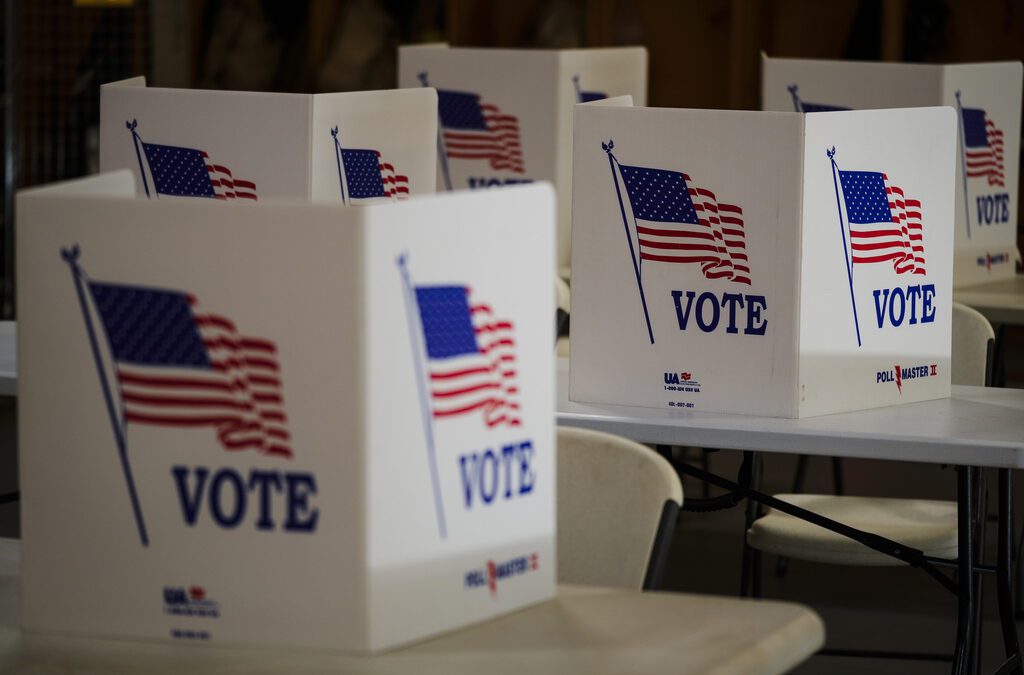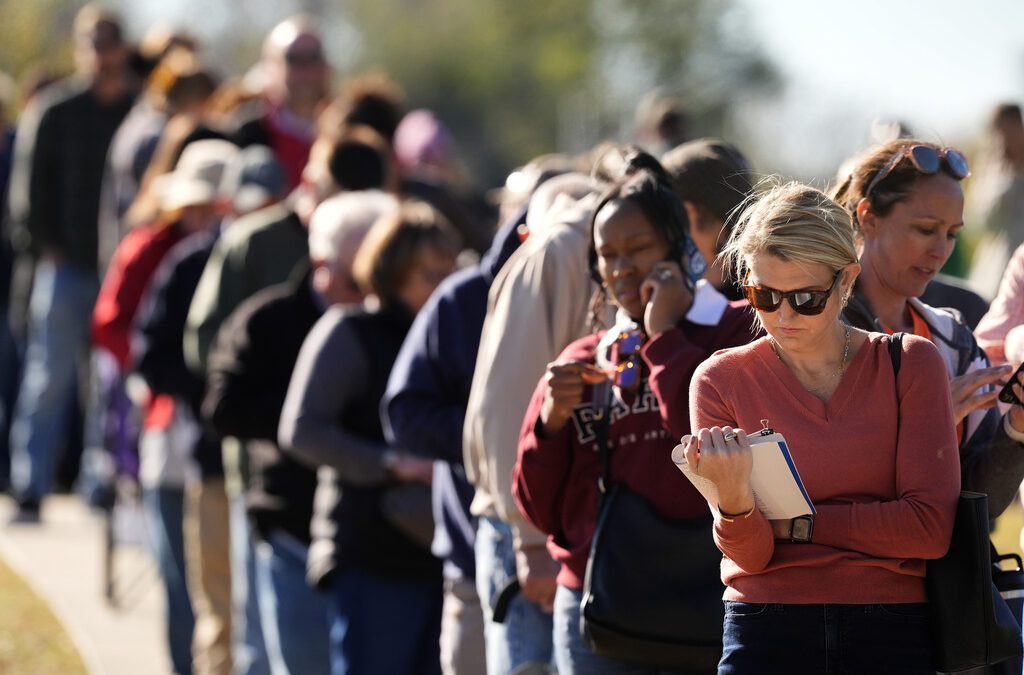
Democratic PA Supreme Court justices up for retention include David Wecht (left), Christine Donohue (center), and Kevin Dougherty (right).
Register to vote by Oct. 20, request a mail-in or absentee ballot by Oct. 28, then vote by dropbox, drop-off, or in person by Nov. 4. See your local options here.
While a state Supreme Court election may not dominate the headlines the way presidential or congressional races do, voting for statewide justices is just as important. Justices make decisions regarding important issues all Pennsylvanians are affected by every day.
On the ballot Nov. 4, three Democratic Pennsylvania Supreme Court justices are up for a retention vote.
The outcome will shape the future of reproductive rights, voting access, environmental protections, and workers’ rights in the commonwealth.
Upcoming vote
Supreme Court elections often get overlooked, but their impact lasts for years.
Judges on the state’s highest court serve 10-year terms, and then face a “yes” or “no” retention vote at the ballot box to serve another 10 years.
This November, it’s up to voters to decide whether Democratic Justices Kevin Dougherty, David Wecht, and Christine Donohue should keep their seats on the state Supreme Court for another term.
If voters say “no,” Gov. Josh Shapiro has the ability to appoint temporary replacements. But they would be unlikely to be confirmed by the Republican-controlled Senate.
In that case, a special election would be held in 2027 to find three new judges for the court.
What’s at stake
Pennsylvania’s highest court has been the final word on some of the biggest issues in the state. In recent years, it has ruled on issues that directly affect every residents’ daily lives, including:
- Reproductive freedom: In 2024, the court ruled Medicaid abortion ban violates equal rights, opening path to expanded access.
- Voting rights: The court has struck down gerrymandered congressional maps, extended mail-in ballot deadlines during COVID, and upheld universal mail-in voting.
- Workers’ rights: In 2020, the court expanded unemployment access to gig workers and required overtime pay and fair treatment in retaliation cases.
Why this race matters now
Unlike federal judges, Pennsylvania Supreme Court justices are elected by the people, making this race a rare chance for voters to directly shape the makeup of the court.
The current court has a 5-2 Democratic majority, but retention elections and open seats mean control isn’t guaranteed.
Key election and registration dates
- Last day to register to vote: Oct. 20
- Last day to request mail-in or absentee ballot: Oct. 28
- Election Day: Nov. 4
Registration and absentee requests can be completed online or in person at your local county election office. Completed mail ballots must be returned to county election offices by 8 p.m. on Election Day.
How to vote
You can vote in person on Nov. 4 at your polling location, between 7 a.m. and 8 p.m.
Vote by mail by requesting a ballot here before Oct. 28, and sending it to your county election office so that it arrives before election day, Tuesday, Nov. 4.
Use a dropbox by requesting your ballot here before Oct. 28, then returning it completed to a dropbox before election day, Tuesday, Nov. 4. For a list of dropboxes and drop-off locations, visit this website and select your county.
Supreme Court justices appear at the end of the ballot with a YES/NO option.
Support Our Cause
Thank you for taking the time to read our work. Before you go, we hope you'll consider supporting our values-driven journalism, which has always strived to make clear what's really at stake for Pennsylvanians and our future.
Since day one, our goal here at The Keystone has always been to empower people across the commonwealth with fact-based news and information. We believe that when people are armed with knowledge about what's happening in their local, state, and federal governments—including who is working on their behalf and who is actively trying to block efforts aimed at improving the daily lives of Pennsylvania families—they will be inspired to become civically engaged.


Josh Shapiro blasts Trump’s threat to ban mail-in voting
President Donald Trump is trying to ban mail-in voting, but Gov. Josh Shapiro says that won’t happen in Pennsylvania. Democratic Gov. Josh Shapiro...

Independents who want to vote in Pennsylvania’s closed primaries seek help from state’s high court
Voters hoping to open up Pennsylvania's closed primary system to independents asked the state Supreme Court on Tuesday to declare the current system...

U.S. Supreme Court rejects GOP request to review Pa. provisional ballot ruling
A GOP challenge to the Pennsylvania Supreme Court’s ruling on provisional ballots is dead, after the U.S. Supreme Court declined to hear the case...

Opinion: Pennsylvanians deserve true, early, in-person voting
As we enter another crucial year at the polls, one with far less attention than a presidential election, but no less important, Pennsylvanians...

Pa. primary recap: O’Connor defeats Pittsburgh Mayor Ed Gainey
In the primaries on Tuesday, Democrat Corey O'Connor defeated incumbent Ed Gainey to run for Pittsburgh mayor in November. In Philadelphia,...





